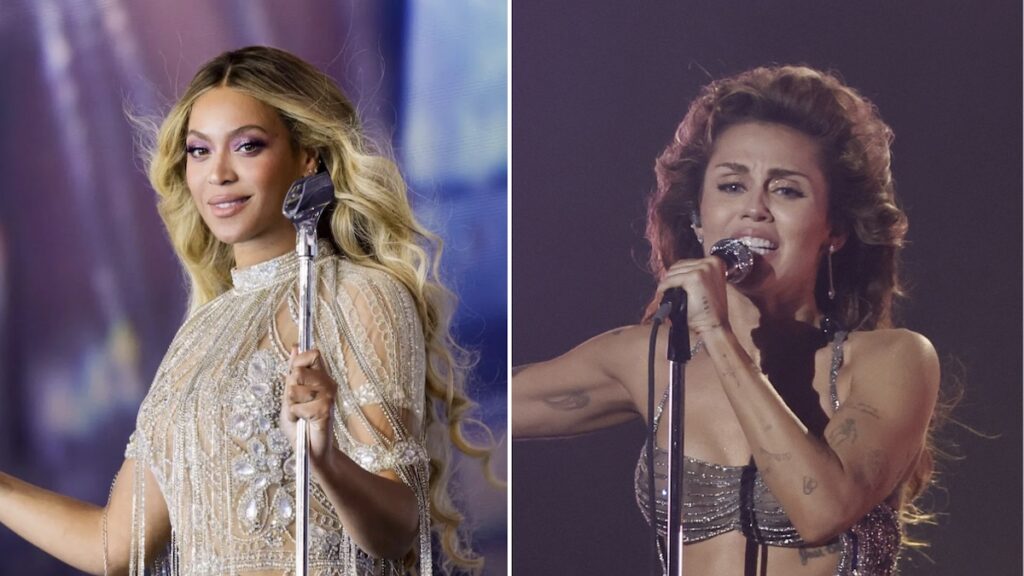Consequence’s Song of the Week highlights the latest and greatest new tracks each week. Find these new favorites and more on our Spotify Top Songs playlist, and for other great songs from emerging artists, check out our Spotify New Sounds playlist. This week, Beyoncé and Miley Cyrus join forces for a collaboration for an unforgettable collaboration.
Beyoncé and Miley Cyrus have two of the most distinct voices in music today. Cyrus has embraced her rasp more with each passing release, and there’s simply no other vocalist like Beyoncé. The two are also both southern gals, with Queen Bey hailing from Texas, Cyrus from Tennessee. They both spent their entire adult lives in the spotlight. And while a collaboration with Miley might not have been what most people expected from ACT II: COWBOY CARTER — solidarity with anyone else who deluded themselves into thinking “Telephone” part two was imminent — but the truth is, this duo really works. And maybe on an initial listen, there’s something almost jarring about hearing them trade off lines, but by the final chorus, it’s nearly impossible not to be swept away by the balance of raw gifts and technical grace.
Now that we’ve all heard COWBOY CARTER in full, it’s clear that Beyoncé was correct when she said ACT II isn’t a country album, but a Beyoncé album. She’s always had a preference for plucking from genres as she pleases and blurring lines, and this project is no different. There are certainly elements of country music past and present, but Beyoncé will never be confined. “II MOST WANTED” is one of the more straightforward tracks on the album, though, and the themes of the song feel especially rooted in a more traditional view of the genre.
“II MOST WANTED” is a bit mournful and nostalgic, acknowledging the ever-flowing passage of time and our inability to stop it. It’s a song focused on the desire to get out of town and just drive. There’s also a number of promises woven into the track; messages to a loved one, and a refusal to let go. Elsewhere on COWBOY CARTER, Beyoncé notes, “Used to say I spoke too country/ And the rejection came, said I wasn’t country enough.” I dare anyone to give this one a listen and find a way to characterize it as not country enough.
— Mary Siroky
Associate Editor

